Role Play: Showing vs. telling in roleplay
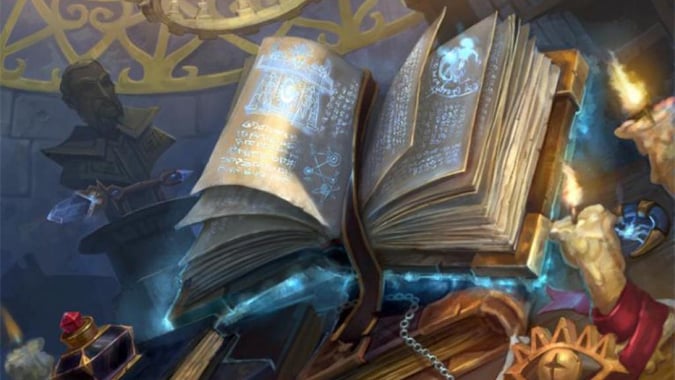
If you have a character, that character has some kind of backstory. Maybe you’ve spent a lot of time working out all the details of your character’s past. Or maybe you just wing it as you go, preferring to focus on your character’s future instead. Regardless, these pieces of backstory tend to affect how your character interacts with others in a variety of situations. We are the sum of all we’ve learned, after all.
But other characters aren’t really aware of where your character is coming from. You character is, in essence, a blank slate to them. Learning about each other is part of that whole roleplaying experience. Sure, a good story is meant to be shared — but how do you effectively tell that story in your roleplay, without giving everything away?
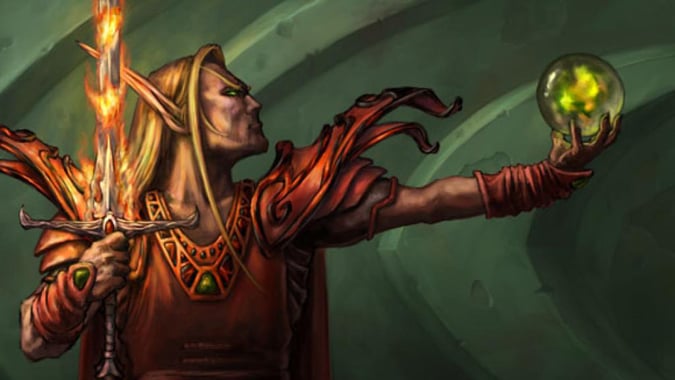
Telling a story
There’s a common technique in writing called “show, don’t tell” — and it applies to roleplay as well as storywriting. It’s a technique that involves letting the reader experience the story through actions, thoughts, feelings, and senses instead of straight exposition and description. The playwright Anton Chekhov is often attributed with this technique, quoted as saying, “Don’t tell me the moon is shining, show me the glint of light on broken glass.”
“Telling” a story is simply relaying information. The moon is shining brightly, the cavalry has arrived, and the warrior hits the dragon with his sword. It works for the purpose of storytelling, but it can feel a little flat. From a roleplay perspective, “telling” the story is having your character simply sit down and explain everything about their lives to date to whomever will listen.
Your character’s past is a complicated tale — just as complicated as your own life. It’s not just a lengthy tale to be recited at whim. It’s the thing that makes your character who they are. A complicated past is full of mystery and roleplay potential. It’s a puzzle that other characters can figure out, if they choose to do so. By simply telling people that story, you’re denying yourself a veritable mountain of potential roleplay.
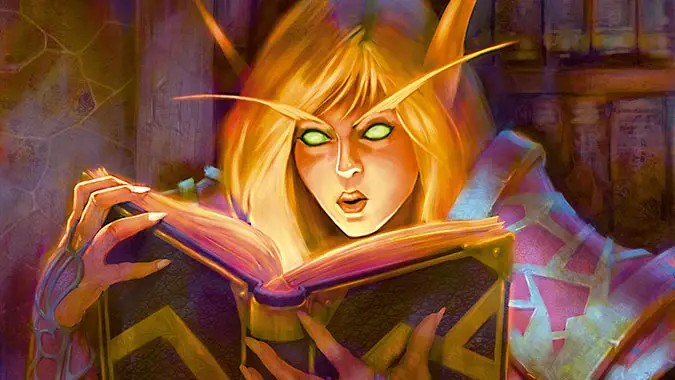
Showing a story
“Showing” a story, on the other hand, is putting the onus of figuring out that tale squarely on the reader. For the purposes of roleplay, this means putting the task of figuring things out on your roleplaying partners. Instead of telling your life’s story to whomever will listen, let that story shine through the actions your character takes. Let it filter through in the way they interact with people.
If your roleplaying partners notice your character acting in certain ways, they may ask about it. Don’t use that as an excuse to deliver the entire tale. Think about how your character would respond. Are they going to be open about everything that’s ever happened to them? Or are they going to dodge the subject entirely? Do they really want to talk about themselves?
Think about the person you’re talking to, as well. Is this a trusted friend, or a random stranger? Ideally, you want to give just enough of your character’s story to keep people intrigued, without giving everything away. If you simply tell the story flat out on night one, that’s the end of that story. But if you only give your partners small pieces at a time, that keeps them asking questions. And if they’re still asking questions, there’s still roleplay to be had.
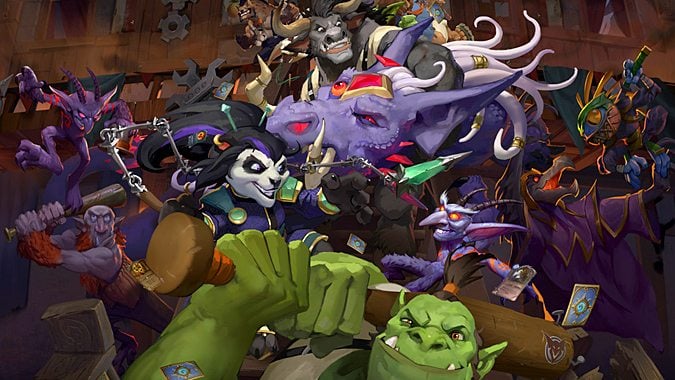
Personality quirks
So how do you “show” a backstory? Personality quirks can help give people an idea of where your character has come from. You could tell people your character was betrayed by a close friend — or your character could display a tendency not to trust people. You could tell people your character grew up alone — or your character could be noticeably shy and skittish in social situations.
A character that incessantly cracks jokes could just be a prankster — or they could be desperately trying to please people. If your character constantly plays with their food before eating it, they could just be a picky eater. Or they could be checking to make sure nobody is trying to kill them.
There are multiple reasons for people to behave the way that they do. On the one hand, it could just be who they are. On the other, it could very well be because their past gave them a reason to act that way. Dropping in personality quirks isn’t just an excuse to make your character more interesting. Those quirks can also act as clues, little moments of insight into your character’s past.
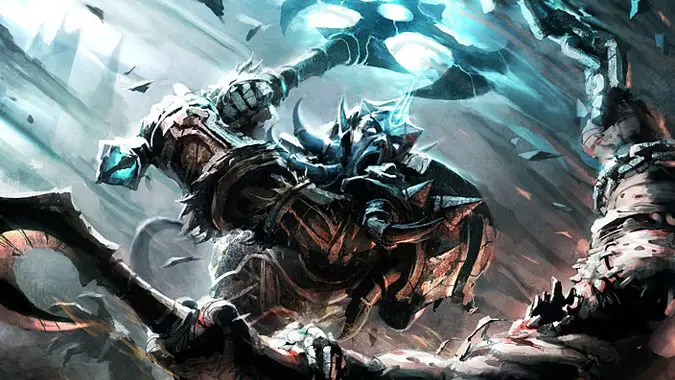
Relationships with others
The other major tells in regards to a character’s backstory are their relationships with other people. Whom do they choose to surround themselves with? What kind of people do they speak to on a regular basis? Whom are they comfortable speaking to? What kind of people do they usually avoid extensive conversations with?
A character who hates the opposing faction could just be incredibly loyal. Or that hatred could be fueled by a life-changing event that happened to them long ago. A character that avoids speaking to goblins could just find the entire race brash and off-putting. Or it’s entirely possible they owe someone money, and they don’t want to cough it up.
Does your character fit in well with high society? Or do they seem to be uncomfortable at the very idea of a fancy party? Is a character who avoids Ironforge or the Undercity avoiding the people, or avoiding their fear of enclosed spaces? Little hints like these are points that your partners can follow up on. They’re opportunities for roleplay, if your partners choose to pick them up.
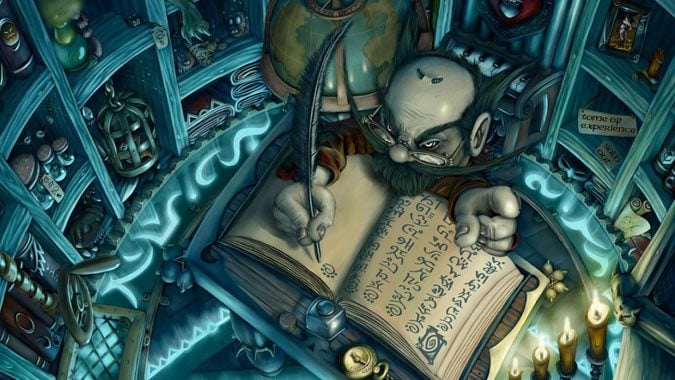
Reading other people
You may be an expert at leaving little hints for people throughout your roleplay. But you want to make sure that you’re not focused solely on your own character. Pay attention to the people around you. Are they leaving little hints for you? Is your character the type to pry at first opportunity, or does it take a while for their curiosity to kick in?
It may seem odd to just drop subtle hints into your roleplay. After all, some people might remain oblivious to these hints, and never ask a thing about your character at all. What you’re doing isn’t like crafting a campaign or event for others to play through. You’re simply leaving opportunities out there for people to pick up on. They don’t have to follow through.
But if you’d like people to start following up on these hints, look for the ones they leave behind. Have your character start asking questions. Demonstrate the behavior you’re looking for. Who knows, your character might discover some surprising things about their friends. And how your character reacts to learning that information can be yet another clue into your character’s past.
It can be tempting to just blurt out the entirety of your character’s backstory when prompted. Doing so can give you a pretty entertaining evening of roleplay. But not doing so stretches that one evening of storytelling into months — maybe even years — of mysteries for others to solve. Which is correct? Well, that’s up to you to decide. Figure out which is more worthwhile to your storytelling, and what method will ultimately make you the happiest.
Please consider supporting our Patreon!
Join the Discussion
Blizzard Watch is a safe space for all readers. By leaving comments on this site you agree to follow our commenting and community guidelines.
 @Shadesogrey
@Shadesogrey




